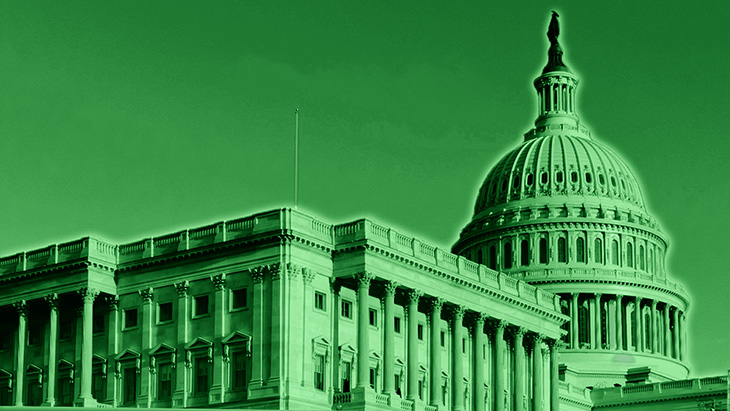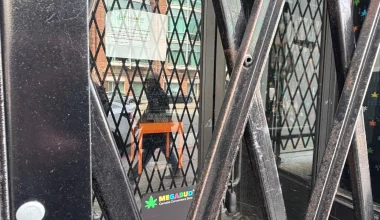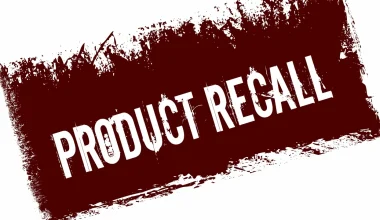Members of the House Judiciary Committee have scheduled a hearing next week to mark up HR 3617: The Marijuana, Opportunity, Reinvestment, and Expungement (MORE) Act of 2021. The Act repeals the long-standing federal prohibition of marijuana — thereby ending the existing state/federal conflict in cannabis policies and providing state governments with greater authority to regulate marijuana-related activities, including retail sales.
“We are excited to see Chairman Nadler and House Leadership move forward once again with passing the MORE Act. Public support and sound public policy demand the repeal of federal marijuana prohibition, Congressional action on this legislation is long overdue. The days of our failed federal policy of prohibition are numbered,” said NORML Political Director Justin Strekal.
While House members deliberate over the MORE Act, members of the Upper Chamber continue to review public comments regarding The Cannabis Administration and Opportunity Act, introduced by Senators Cory Booker, Ron Wyden, and Majority Leader Chuck Schumer.
What the MORE Act Does: The legislation’s provisions remove marijuana from the federal Controlled Substances Act — thereby eliminating the existing conflict between state and federal marijuana laws and providing states with the authority to be the primary arbiters of cannabis policy within their own jurisdictions.
FURTHER: The MORE Act would also make several other important changes to federal marijuana policy, including:
- Facilitating the expungement of low-level federal marijuana convictions, and incentivizing state and local governments to take similar actions;
- Creating pathways for ownership opportunities in the emerging regulated industry as well as other sectors of the economy for local and diversely-reflective entrepreneurs who have been impacted under prohibition through the Small Business Administration grant eligibility;
- Allowing veterans, for the first time, to obtain medical cannabis recommendations from their VA doctors;
- Removing the threat of deportation for immigrants accused of minor marijuana infractions or who are gainfully employed in the state-legal cannabis industry;
- Providing critical reinvestment grant opportunities for communities that have suffered disproportionate rates of marijuana-related enforcement actions.
Following action by the House Judiciary Committee, the MORE Act would require further consideration or waiver by the various jurisdictional committees before receiving a floor vote.
Key Facts Underscoring Marijuana Policy Reform Efforts:
- According to the FBI UCR, over 545,000 Americans were arrested for marijuana-related crimes in 2019 alone. Over 90% of those arrested were charged with mere possession.
- According to a recent report by the ACLU, Black Americans are 3.6 times more likely to be arrested for cannabis-related crimes than white Americans.
- The state-legal cannabis industry employs over 321,000 full-time workers; that is over six times the number of jobs specific to the coal industry.
- While the substance is not without harm, cannabis is objectively less harmful than legal and regulated alcohol and tobacco.
National Polling
Quinnipiac University, April 2021
Question: Do you think that the use of marijuana should be made legal in the United States, or not?
- Overall: 69% Yes – 25% No
- Democrat: 78% Yes – 17% No
- Republicans: 62% Yes – 32% No
- Independents: 67% Yes – 28% No
Gallup Polling, Nov. 2020
Question: Do you think the use of marijuana should be made legal, or not?
- Overall: 68% Yes – 32% No
- Democrat: 83% Yes – 16% No
- Republicans: 48% Yes – 52% No
- Independents: 72% Yes – 27% No
Pew Research Center, April 2021
Question: Which comes closer to your view about the use of marijuana by adults?
- 60% It should be legal for medical AND recreational use
- 31% It should be legal for medical use ONLY
- 8% It should NOT be legal
Breakdown:
- 12% of Republicans say marijuana should NOT be legal
- 5% of Democrats say marijuana should NOT be legal
History of the MORE Act:
On December 4th of 2020, Members of the House of Representatives voted to approve the MORE Act, HR 3884, by a margin of 228 to 164. However, under the leadership of then-Majority Leader Mitch McConnell (K-KY), the full Senate did not consider the legislation prior to the close of the 116th Congressional session.
HR 3884 was carried in the 116th Congress by House Judiciary Committee Chairman Jerry Nadler and in the Senate by Vice President Kamala Harris.
House Judiciary Committee Chairman Jerry Nadler, along with Cannabis Caucus co-chairs Earl Blumenauer and Barbara Lee, Judiciary Crime Subcommittee Chairwoman Sheila Jackson Lee, House Democratic Caucus Chairman Hakeem Jeffries, and Small Business Committee Chairwoman Nydia Velázquez reintroduced the 2021 version of the bill in May.
Kamala Harris is now Vice President of the United States and is unable to reintroduce companion legislation. In July, Senate Majority Leader Schumer, along with Finance Committee Chairman Ron Wyden and Judiciary Committee’s Senator Cory Booker introduced a discussion draft for public comment of forthcoming legislation, The Cannabis Administration and Opportunity Act, that seeks to similarly remove cannabis from the Controlled Substances Act.
Related
Medical Disclaimer:
The information provided in these blog posts is intended for general informational and educational purposes only. It is not a substitute for professional medical advice, diagnosis, or treatment. Always seek the advice of your physician or other qualified healthcare provider with any questions you may have regarding a medical condition. The use of any information provided in these blog posts is solely at your own risk. The authors and the website do not recommend or endorse any specific products, treatments, or procedures mentioned. Reliance on any information in these blog posts is solely at your own discretion.






